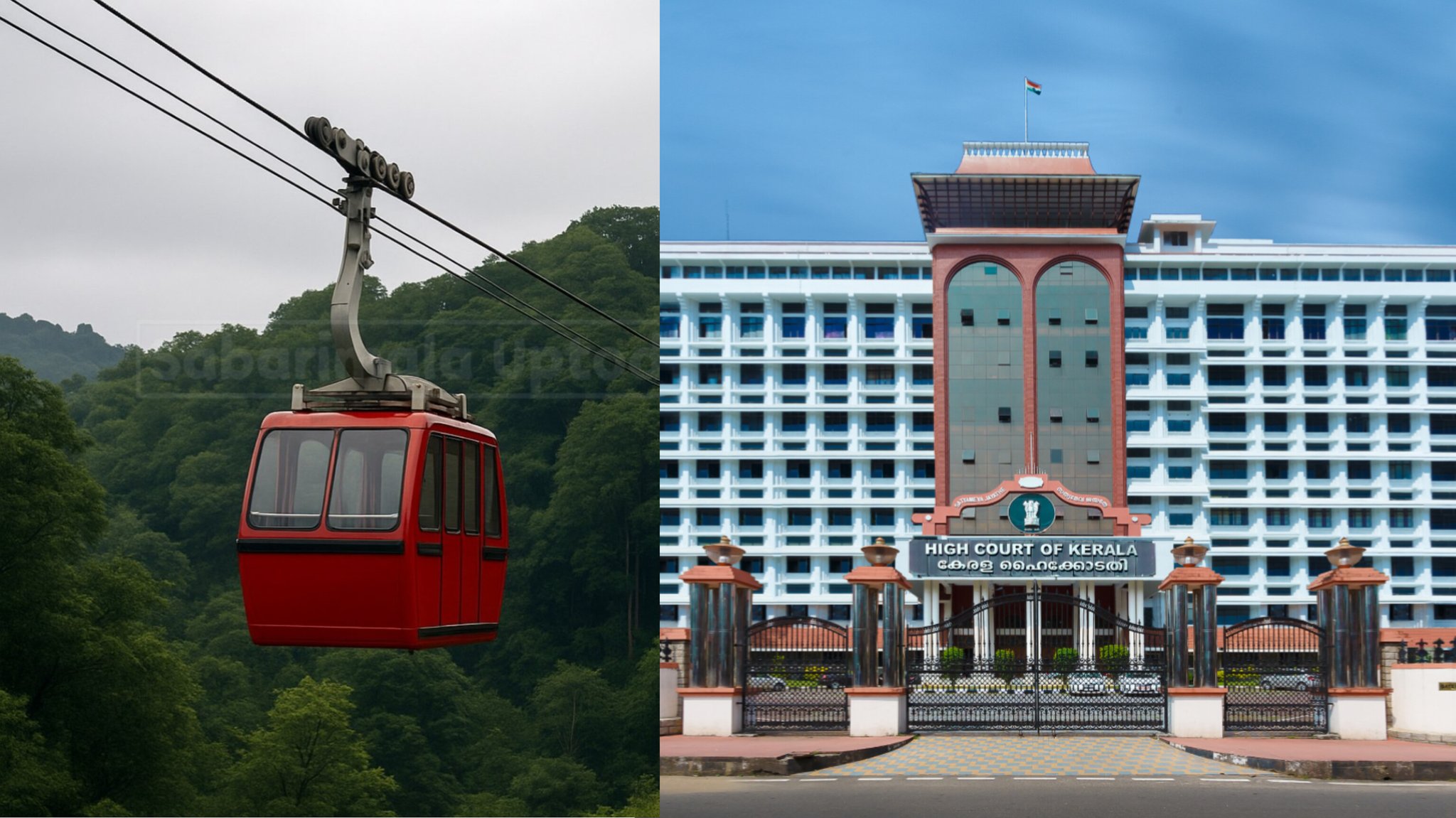Kerala HC Highlights Ecological Risks in Ropeway Plan for Sabarimala

Kochi: The Kerala High Court has directed the Ministry of Environment, Forest and Climate Change (MoEFCC) to clarify its stance on the proposed ropeway project at the Sabarimala temple, expressing concerns over its environmental impact and feasibility.
During a hearing on Friday, a Division Bench comprising Justice V. Raja Vijayaraghavan and Justice K. V. Jayakumar asked the Deputy Solicitor General to seek instructions from the MoEFCC on the project, which is planned to pass through the ecologically sensitive Periyar Tiger Reserve. The court took up the matter suo motu, based on a report submitted by an Advocate Commissioner.
Sabarimala, located in the Western Ghats in Kerala’s Pathanamthitta district, is one of India’s most prominent pilgrimage centres. Pilgrims traditionally undergo a 41-day penance before making a barefoot climb from the Pampa River to the hill shrine, which stands 3,000 feet above sea level.
The proposed ropeway—planned by Eighteeth Step Damodar Cable Company Ltd.—is intended to ease the arduous journey. However, it has triggered debates over its ecological and infrastructural implications.
Court Flags Gaps in Project Plan
The Bench voiced sharp criticism about the lack of basic infrastructure at Sabarimala and the absence of critical details in the ropeway proposal.
"Why would someone do this? You don't even have the capacity to provide toilets to all these people. Why do you want all these people to go there? How is it possible? I don't know," the court remarked during the proceedings.
The judges noted that the project’s documentation lacked clarity on the route and environmental effects: "From the sketches provided, it doesn't appear from where to where this path is being cut. What is the length – absolutely nothing. What is stated is that a 12-metre-wide forest and trees will be cut and removed, and they will install 6 or 7 pillars and then take it up."
Environmental Concerns and Compensatory Afforestation
The proposal includes 10 acres of compensatory afforestation in Thenmala, but the court questioned whether this offset was adequate or appropriate. "This forest is different from Thenmala... If it is a tourist destination, you can take a ropeway or whatever. Here you look at the facilities there," the Bench observed.
When comparisons were drawn to the Palani cable car system, the court emphasised that Sabarimala’s situation was unique: "Sabarimala is different. No tree was cut in Palani."
The court has adjourned the matter for 10 days, awaiting the MoEFCC’s response on the feasibility and environmental implications of the project.
